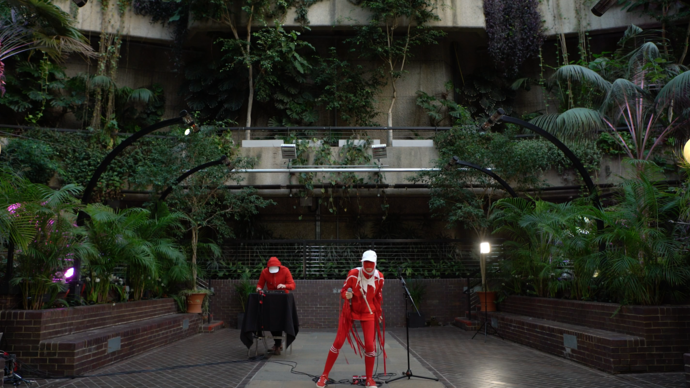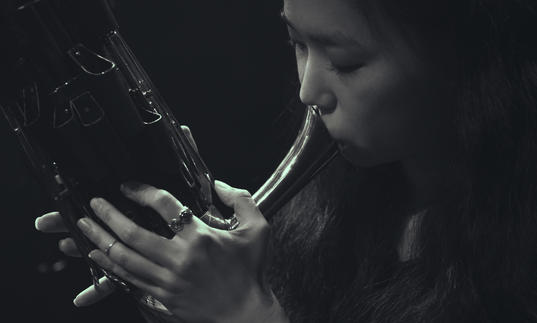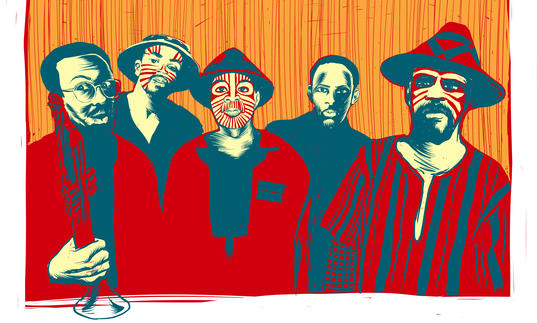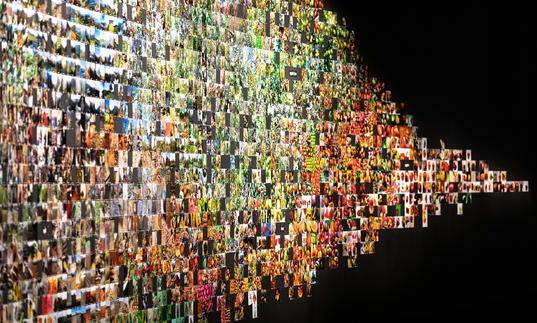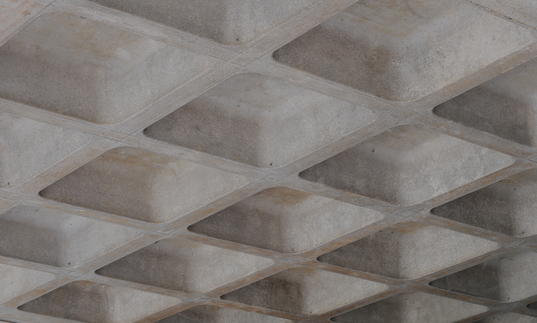There is no mistaking the voice of Philadelphia-based poet, activist, sound experimentalist and Afrofuturist Camae Ayewa, aka Moor Mother. It has a captivating quality, across her solo works to multi-layered collaborations including the Black Quantum Futurism literary/art collective (with Rasheedah Phillips), legendary avant-garde group The Art Ensemble of Chicago, and ‘liberation oriented’ free jazz collective Irreversible Entanglements. It is fantastically vivid, blazing with warmth, righteous fury, and intensely sharp truths.
In The Great Bailout, Ayewa’s free verse delivery tells a story and paints a ‘non-linear word map’ exploring colonialism, commerce, the Commonwealth nations, and Great Britain’s (all too often unspoken) slave trade history. The 1833 Slavery Abolition Act abolished slavery throughout the British Empire; it also ensured that hefty compensation was paid out – not to the men, women and children who had been abducted from their homes and forced into inhuman servitude, but to the registered ‘owners’ who’d lost their ‘business assets’. The total compensation raised by the British government came to £20million; in 1833, that ‘magic money tree’ represented 40% of the Treasury’s annual income – by contemporary wage values, it’s estimated at nearly £17billion.
Ayewa’s perspective feels both intimate and international here. She recalls stumbling across a documentary on the theme of The Great Bailout, while on a previous European tour. ‘It led me to archives, information about money, different conversations with black artists in Britain,’ she says. ‘It’s also always been super-connected to America, and that sense of wondering where your surname came from.’
Her free verse poem emphasises the worldwide scale of this subject (‘The Romans, the Portuguese, the Spanish, the Italians, the Dutch…’), and evokes further connections between legacy and current situations; the ‘Motherland’s treatment of her modern citizens, notably the Windrush generation who were invited to help rebuild Britain post-World War Two, definitely springs to mind.
‘I wasn’t following any guidelines; I was just going for it, and how it flowed,’ explains Ayewa. ‘The Afrofuturist lens also comes into this, in terms of redefining a way to examine the past and trauma, when we’re regularly told to forget about things that happened a long time ago.’
The Great Bailout teams Ayewa with a four-piece ensemble from the versatile and typically adventurous London Contemporary Orchestra; it’s a collaboration that builds on her free jazz experience, and also responds to her long-standing desire to create an orchestral work (in a 2017 interview, she’d enthusiastically declared: ‘I really wanna fuck up some classical music!’ – she was subsequently invited to do so by the director of Gateshead’s Tusk Festival). As LCO co-founder Robert Ames says: ‘The show has a lot of freedom; this piece of music is constantly growing and changing, and becoming stronger all the time.’
Violinist Galya Bisengalieva leads the group (and also performs an opening set of her solo compositions), with viola player Alison D’Souza, pianist Katherine Tinker, and percussionist Ric Elsworth. Bisengalieva mentions that they experimented with and developed new sounds through a series of workshops: ‘The show includes a lot of improvisations, use of pedals, technology and extended techniques.’
The set also comprises three sections, from a deconstructed version of the British national anthem (God Save The Queen), via gospel and African soul elements, to the final section: Liverpool Wins. Ayewa explains: ‘It refers to that period of time when the business of slavery was so incredible that Liverpool surpassed London for some time. The entire landscape changed, for generations.’
There are resonant contrasts in The Great Bailout, between the haunting reality of the expressions and the intense beauty of the collaborations; as Ayewa points out, it also feels like a vital confrontation:
‘At the end of the performance, it has felt like people want to talk – and I wanna hear what people are saying. This should be a conversation.’

